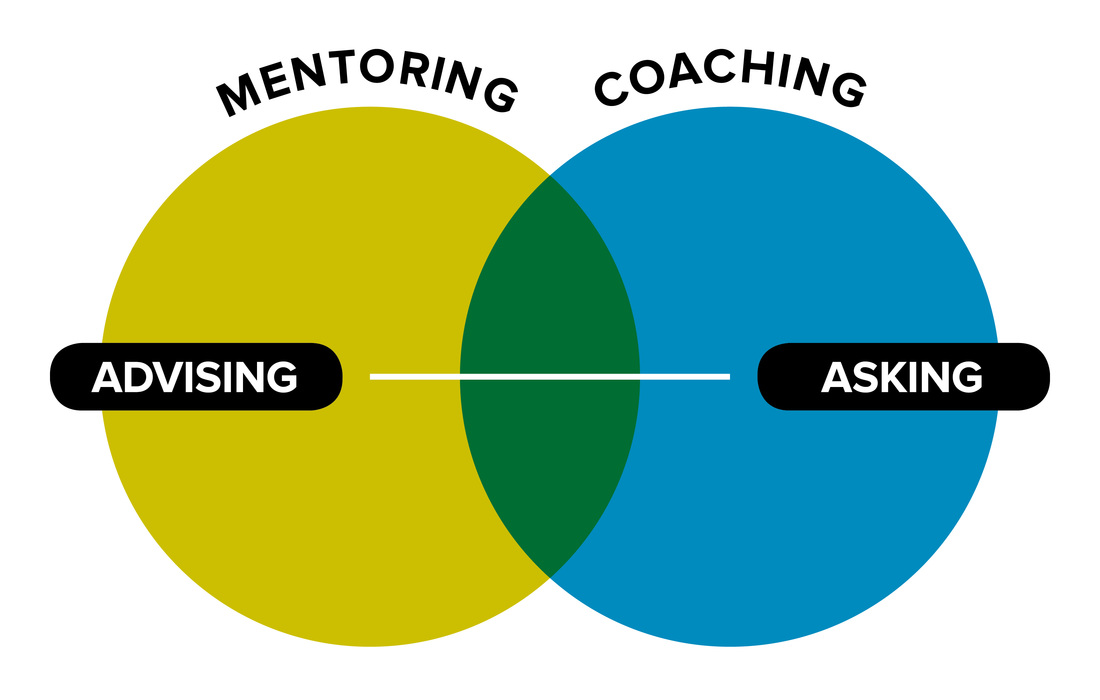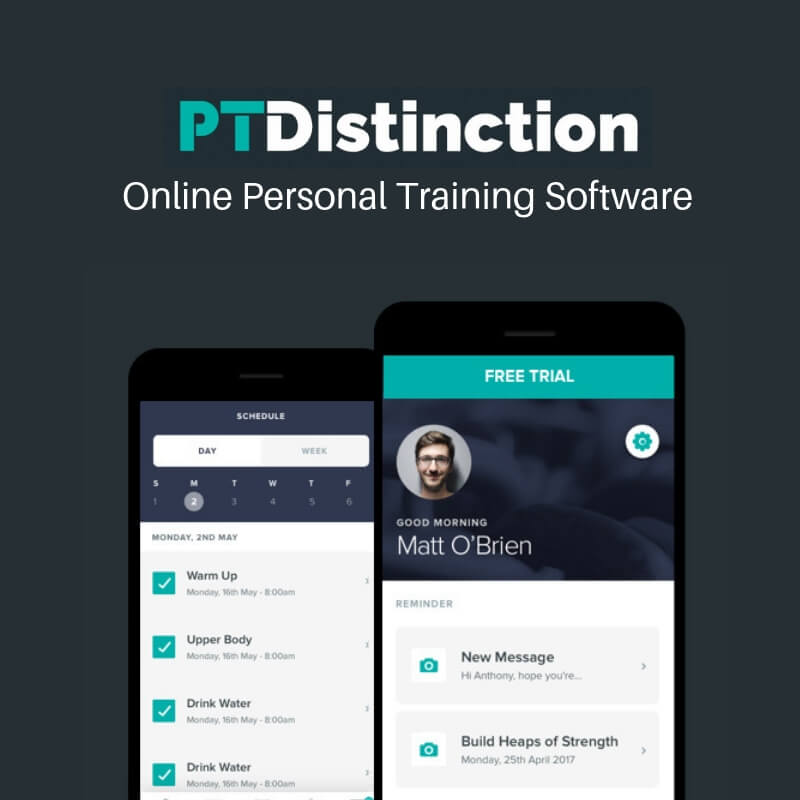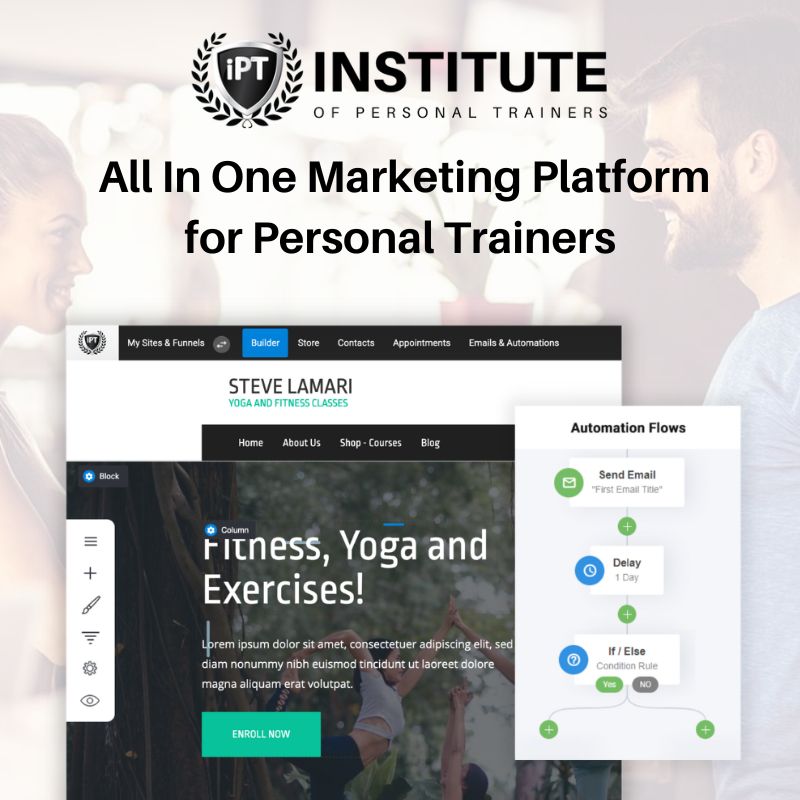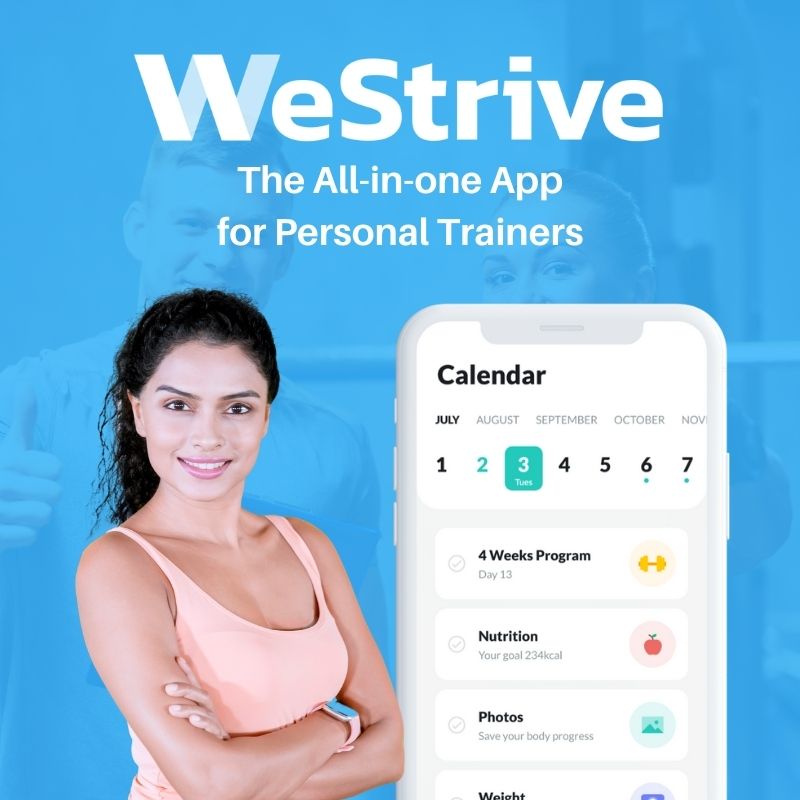Have you seen these types of headlines before? “How Joey PT Made £10k With One Phone Call” or “Double Your Income With This One Simple Tip”.
They're usually followed by an article with zero actionable content or a Facebook Live video with a fitness business mentor in sunglasses, walking down the street, looking very busy.
You probably think, "if it worked for them, it must work for me too, right?" Yet this type of logic is fundamentally flawed and could actually harm your business. Here’s why?
Let’s say you offer a business coaching service to 1,000 personal trainers and provide them with sound, but expensive business advice.
50% of these personal trainers would take the risk and follow your advice. Of these 500 personal trainers, 50% would typically succeed. These guys would then scream from the rooftops about their success and make you look great.
But the other 750 who failed would say nothing, they’d feel stupid, inadequate and they’d rather not have their failures broadcast to the public.
This is called Survivor Bias and it’s what some, not all, coaches and mentors rely on to fund their businesses.
Coming up, I’m going to talk about the differences between coaches and mentors, how to spot a Survivor Bias Mentor and how to choose the right coach or mentor for you.
Let’s get to it!
The Difference Between a Mentor and a Coach
The dictionary definition of a mentor is “an experienced and trusted advisor”. While the dictionary definition of a coach is “a private teacher who gives someone lessons in a particular subject”.
A mentor doesn’t necessarily need to have a qualification in a particular subject, nor be an expert in anything. You connect with them for their experiences and the knowledge they have acquired through those experiences.
A mentor doesn’t necessarily need to have a qualification in a particular subject, nor be an expert in anything. You connect with them for their experiences and the knowledge they have acquired through those experiences.
A coach on the other hand takes you step by step through a particular process. You’d expect a coach to be qualified in the subject matter or at least a long term practitioner. A lot of personal trainers often look for a business coach for advice on how to improve their existing business systems.
What Does a Mentor Do?
A mentor provides guidance on career management and professional development that you wouldn’t be able to find in a coach.
They can help you do this using the knowledge they have gained from years of experience and from already achieving what you have achieved.
A good mentor will be caring and empathetic as well as invested in your personal and professional growth. They’ll speak the truth, often whether you like it or not, and offer constructive criticism about business decisions.
They can help you do this using the knowledge they have gained from years of experience and from already achieving what you have achieved.
A good mentor will be caring and empathetic as well as invested in your personal and professional growth. They’ll speak the truth, often whether you like it or not, and offer constructive criticism about business decisions.
What Does a Coach Do?
A coach helps personal trainer businesses to understand and implement processes that improve conversion and retention rates.
A business coach is usually qualified either as student or a practitioner. For example, the business coaching skills may have been learned in a classroom or from several years of simply doing.
A business coach is usually qualified either as student or a practitioner. For example, the business coaching skills may have been learned in a classroom or from several years of simply doing.
How to Choose a Fitness Business Mentor
Mentors come in all different shapes and sizes. Some mentors are full on and others take a more reactive back seat role. So instead of looking for someone with whom you can build a 3-4 hour per day relationship with, you'll often find someone who can simply answer your questions in good time.
Someone you have reasonable access to via email or phone, because sitting down for an hour long meeting isn’t always feasible.
Someone you have reasonable access to via email or phone, because sitting down for an hour long meeting isn’t always feasible.
With that said, it’s important to choose a mentor based on your goals. If you need full on business assistance and career development, a busy gym manager might not be your best choice.
First and foremost, the best mentor relationships happen without the formal label "mentoring." Nobody sends a Facebook message saying “can I mentor you? It’s only $10,000!”. Nobody sends a note to someone they aspire to saying, "Would you be my mentor?" followed by yes, no, and maybe boxes to check.
Questions are asked, thoughts are shared, and advice is given and an effortless mentor relationship is born.
Here are some things to consider when choosing a mentor:
Has he already achieved what you are trying to achieve?
It’s tempting to look upward when searching for the right mentor but sometimes he or she might be to the right or left. Your personal and professional goals are what will dictate your choice in a mentor.
For example, you might want to dominate your local area or you might want to simply earn a good enough wage and have enough time and money for your family. Each goal requires a different type of mentor.
Look to surround yourself with people who have achieved what is most important to you.
How did you find him?
As I said before, mentors typically do not get in touch with you via Facebook. Look at it this way, if they have to go out of their way to let you know that they exist, they’re probably not doing it wrong, right?
The ones who are doing it right already have a reputation for doing it right. They get consistent results over a long period of time and often surround themselves with like minded people.
The same is also true of business coaches. If they have to get in touch with you and try to persuade you why you should hire their services, they’re probably not the best coach.
How much do they give?
This one is little bit off of the beaten track but I feel as though it’s important. People who are doing well tend to give a lot in business. It really is that simple. The more you have, the more you give. Because successful people understand that giving value without expecting anything in return is one of the best ways to do business.
Try to think of 2-3 people who are doing well in the fitness industry. Now go and see how much they are giving. You’ll see what I mean.
What kind of reputation does he have?
A good mentor will almost always have a great reputation within the industry. They’ll be know for giving a lot, developing relationships and connecting people together.
How to Choose a Fitness Business Coach
Unlike mentors, a fitness business coach will almost certainly take a more proactive role in your business. They typically analyse every step of your sales process and all of your marketing assets to ensure you’re business is operating at full capacity ASAP.
A business coach doesn’t necessarily have to have achieved what you are trying to achieve because they’re teaching a skill, not a philosophy. This means you can find a coach by simply searching in the right places and asking the right people.
For example, you might want to increase your Bootcamp numbers. In which case, you’d find an expert in building bootcamp businesses to teach you and implement the right systems and processes to increase your numbers.
Here are some things to consider when choosing a coach:
What’s their track record?
Probably the most impotent question. Can they show that they consistently get results for their clients? If not, why not?
How did you find them?
A good business coach will usually have a good business model. And a good business model does NOT include writing long form messages on Facebook everyday from their personal profile.
If you see a long form Facebook post that identifies your problem and offers a half assed solution to your problem with a "PM me for details" at the end of it... Run a mile in the opposite direction.
These people are not good at building businesses, they're good at hard selling. If they were good at business, you'd be reading the information they have to offer from a reputable website from where they can obtain your email and retargeting you via Facebook. You know... like all legitimate businesses do.
What do they offer?
Business coaches often offer a variety of services from general business systems to SEO, Facebook ads, copywriting and email marketing. Most of which are measurable.
This means they should be able to offer a certain result in a reasonably specific time frame.
For example, if you hired me for my SEO services, I'd be able to do some quick calculations and a bit of research to make an educated guess on the time frame. Give or take 2 months depending on conditions.
All good businesses track and measure results and if they’ve been in business for some time, they’ll have a rough idea when it comes to time frames.
A business coach doesn’t necessarily have to have achieved what you are trying to achieve because they’re teaching a skill, not a philosophy. This means you can find a coach by simply searching in the right places and asking the right people.
For example, you might want to increase your Bootcamp numbers. In which case, you’d find an expert in building bootcamp businesses to teach you and implement the right systems and processes to increase your numbers.
Here are some things to consider when choosing a coach:
What’s their track record?
Probably the most impotent question. Can they show that they consistently get results for their clients? If not, why not?
How did you find them?
A good business coach will usually have a good business model. And a good business model does NOT include writing long form messages on Facebook everyday from their personal profile.
If you see a long form Facebook post that identifies your problem and offers a half assed solution to your problem with a "PM me for details" at the end of it... Run a mile in the opposite direction.
These people are not good at building businesses, they're good at hard selling. If they were good at business, you'd be reading the information they have to offer from a reputable website from where they can obtain your email and retargeting you via Facebook. You know... like all legitimate businesses do.
What do they offer?
Business coaches often offer a variety of services from general business systems to SEO, Facebook ads, copywriting and email marketing. Most of which are measurable.
This means they should be able to offer a certain result in a reasonably specific time frame.
For example, if you hired me for my SEO services, I'd be able to do some quick calculations and a bit of research to make an educated guess on the time frame. Give or take 2 months depending on conditions.
All good businesses track and measure results and if they’ve been in business for some time, they’ll have a rough idea when it comes to time frames.
Summing Up
Choosing a business coach or mentor is on of todays biggest challenges for fitness business owners. You’re pulled left, right and centre with advice, only to end up in a constant loop of information overload.
Mentors provide personal and professional development advice based on experiences. Their experiences and insights are invaluable but you don’t necessarily have to hire them.
Coaches are experts in business systems. They should have a good track record, a legitimate website and you’d be able to find out more about them easily.
Don’t fall for the snake oil tactics I see every single day. Where “coaches” and “mentors” offer to give business advice in the form of a long essay while seemingly expecting nothing back. They’re there to build THIER brand awareness to make it easier to sell to you later.
While the information may be useful, just beware of any hidden agendas.
As a rule of thumb, they’ll more than likely want to get you on the phone or on Skype because that’s where they thrive, in a hard selling environment.
There are a lot of really great guys out there who are doing some really good work. It's difficult to tell the goodies from the baddies so take your time and do your research.
Do you have a coach or mentor? How did you find him/her? What did you achieve?
Mentors provide personal and professional development advice based on experiences. Their experiences and insights are invaluable but you don’t necessarily have to hire them.
Coaches are experts in business systems. They should have a good track record, a legitimate website and you’d be able to find out more about them easily.
Don’t fall for the snake oil tactics I see every single day. Where “coaches” and “mentors” offer to give business advice in the form of a long essay while seemingly expecting nothing back. They’re there to build THIER brand awareness to make it easier to sell to you later.
While the information may be useful, just beware of any hidden agendas.
As a rule of thumb, they’ll more than likely want to get you on the phone or on Skype because that’s where they thrive, in a hard selling environment.
There are a lot of really great guys out there who are doing some really good work. It's difficult to tell the goodies from the baddies so take your time and do your research.
Do you have a coach or mentor? How did you find him/her? What did you achieve?











